The post-Canadian Track and Field Championships report card
With the IAAF World Championships looming, we grade every major performance at last week's Canadian Track and Field Championships, and what the ramifications are for each athlete
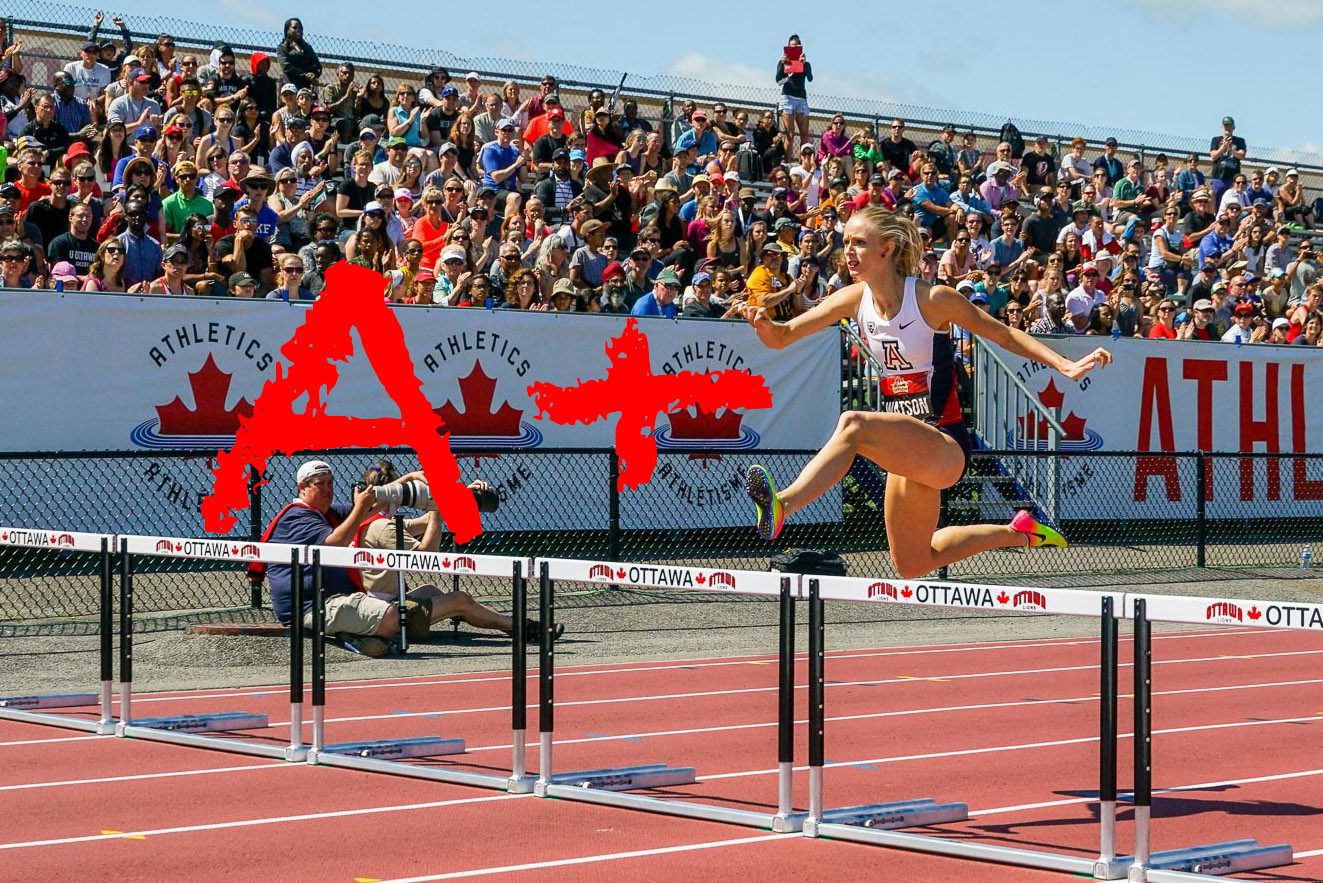
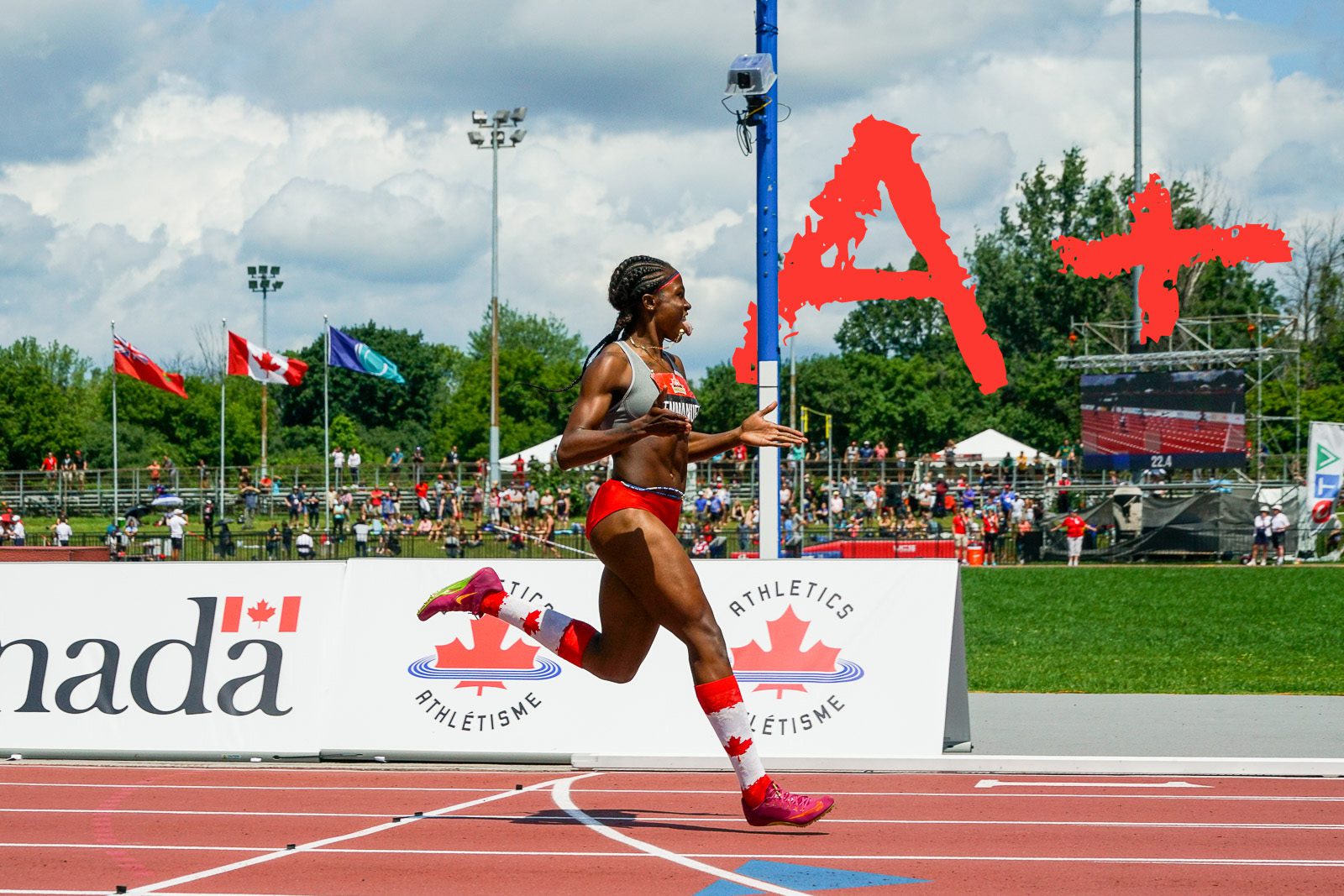 Canada’s track and field championships, held last week in Ottawa, serve a dual purpose: to crown the best in the country at each event, and also to help Athletics Canada determine who will represent the country at the upcoming IAAF World Championships in London. Getting into Worlds is a bit of a convoluted process, but you can expect that if a Canadian athlete has the standard time set for their event by Athletics Canada and they placed top two at the Canadian Championships. Third place finishers with standard will almost certainly get the nod to represent Canada as well. Finishers outside of the top three will be selected only if they have standard and at the discretion of Athletics Canada.
Canada’s track and field championships, held last week in Ottawa, serve a dual purpose: to crown the best in the country at each event, and also to help Athletics Canada determine who will represent the country at the upcoming IAAF World Championships in London. Getting into Worlds is a bit of a convoluted process, but you can expect that if a Canadian athlete has the standard time set for their event by Athletics Canada and they placed top two at the Canadian Championships. Third place finishers with standard will almost certainly get the nod to represent Canada as well. Finishers outside of the top three will be selected only if they have standard and at the discretion of Athletics Canada.
Editor’s note: Canadian athletes have until July 16 to achieve the qualification standard for the IAAF World Championships, held this August in London. For a complete breakdown of Canadian athletes who’ve already made standard, see this athlete tracker maintained by Athletics Canada. It’s noted below whether or not the athlete has standard as of the finale of the Canadian Track and Field Championships. We’ll post the official team when it’s announced later this month by Athletics Canada.
100m and 200m
Crystal Emmanuel
A+
Ottawa may have been swooning over Andre De Grasse, but Emmanuel was actually the more dominant sprinter. No other woman was close in the 100m or 200m, and she relished each victory with panache, electrifying the crowd. At 25 and with years of international experience, she’s becoming a mature athlete and will look to see if she can take her career to the next level at the World Championships.
 Andre De Grasse
Andre De Grasse
A
De Grasse got beat in the 200m last year at the Canadian championships in Edmonton. So his double gold weekend, although expected, was a part of what he said he’d come to Ottawa to achieve. His other major goal was to run fast. He didn’t crack 10 seconds in the 100m, but did break 20 seconds in the 200m, although it was heavily wind aided. The weekend was all about De Grasse, which should boost his confidence going into London to face Usain Bolt, and arguably the most pressure-packed series of races of his career.
Gavin Smellie
B
The veteran sprinter now faces a crowded field of top level Canadian talent just to make international teams. Although it would have been better for him to have tied up second place in the 100m behind De Grasse, he still got on the podium, meaning that as long as Brendan Rodney (who came in second) doesn’t run the 10.12 standard before the qualification window closes on July 16, he’ll get a change to race the 100m. His fifth place finish in the 200m, on the other hand, was disappointing, as he had standard. It’s uncertain if Athletics Canada will call on him to double in London.
Aaron Brown
C
Brown’s meet didn’t get off to a very good start. He was DQed in the 100m, eliminating any chance that he’ll double at Worlds. He managed to rebound in the 200m, holding on to third place behind Rodney and De Grasse, who seemed to will himself from third to first in the last 50m. Brown got lucky that Smellie had such a bad race, and protected his spot by making the podium, as Brendan Rodney, who placed second, could easily find a Worlds qualifying time (a very doable 20.44 for him) within the window. Brown will probably also get picked for the 4x100m relay team, and they should contend for a medal in London.
 Brendon Rodney
Brendon Rodney
B
In 2016, Rodney was a dark horse. Then he ran a sub-20 200m and beat De Grasse at Nationals for the title. This year, he’s a contender, and De Grasse was gunning for him in the 200m. Rodney doesn’t have the 100m standard for Worlds but ran extremely well in Ottawa, taking silver. He then had a big lead leaving the turn in the 200m, only to give the race to the surging De Grasse. He was visibly upset after the race, and should have been. Rodney will hopefully rep Canada once again in the 200m and should also be a part of the 4x100m relay team. His performance in Ottawa is a solid B. It would have skyrocketed to a A if he’d repeated his title in the 200m or made standard at the meet in the 100m or 200m. Count on him to go be on a plane (or two) this week in search of standard.
100m hurdles
Phylicia George
B
George has been on the scene forever and knows how to get the job done. She’s got standard already, so she just needed a podium finish to assure her spot on Team Canada. She mildly disappointed in the final, losing to the 37-year-old Angela Whyte (who doesn’t have standard, but now has hope that she’ll make yet another national squad). George will have to run better to make a final in London.
110m hurdles
https://www.instagram.com/p/BWVk6qWhFTp/
Johnathan Cabral
A-
Cabral was in tough against Sekou Kaba and Damian Warner, who is a world class hurdler (what isn’t that man good at?). The final was absolute carnage, as the field seemed to take down more hurdles than they actually cleared. Cabral won in a desperate stagger to the finish, and clearly injured himself in the process. He was not able to come out for the medal ceremony and his status remains uncertain. That’s why we’ve downgraded him to an A-, as all that effort will be for not if he can’t actually make it to the start line in London.
400m hurdles
 Sage Watson
Sage Watson
A+
Watson is flying high in 2017. She just came off a NCAA title (sadly, far more impressive than a national title in Ottawa). She had some stiff competition in fellow Olympian Noelle Montcalm, and she dusted her. Watson set a championship record in the process, running 54.97 and beating a record that had stood since 1993. Watson will now turn her attention to Worlds, and no doubt the Canadian record of 54.39.
Noelle Montcalm
B
Montcalm finished second to Watson, and is clearly the second best women’s hurdler in the country. She’s now going to represent Canada again at the World Championships. Like Watson, her goal will be to finally crack a major world championship final, which may require she also PB in the process.
400m
 Carline Muir
Carline Muir
B-
Muir is the best women’s 400m runner in the country and, along with Stiverne, has standard for London. Getting beat by Natassha McDonald in the final was not supposed to be part of the narrative (McDonald will now go in search of a qualifying time for Worlds). Muir did secure silver in Ottawa, so she’ll be heading to London, but will want to run better if she hopes to make it into a semi or the finals there.
Aiyanna-Brigitte Stiverne
C-
The other athlete with standard going into the weekend, she did not position herself well and missed the podium, meaning that she is in danger of being overlooked for the World Championships team. At 22, she’s got a lot of talent and upside, and this tactical error will be a learning experience.
Alicia Brown
D
After serving an embarrassing two-year ban for a positive test of a diuretic (commonly used as a masking agent for PEDs and thus banned by WADA), Brown made her first Olympic squad in 2016 and seemed to have turned her career around quickly. She didn’t run well in the final on Sunday, placing sixth, and doesn’t have a qualifying time for the Worlds team, so she’ll be left behind in August.
800m
 Melissa Bishop
Melissa Bishop
A
Bishop is easily one of Canada’s best runners and a legitimate medal contender at the World Championships. It was expected that she’d handily win the national championship, but Canada is quite deep in the 800m, so she had to be careful. Her time was just a touch over the magic 2:00 barrier, but that’s really the only minor flaw in an otherwise perfectly executed national championships for Bishop. She handles every aspect of running–from training to selecting prep races to making her way through an big meet–perhaps better than any Canadian track athlete competing today.
Jenna Westaway
B-
Westaway slipped in ahead of a crowded field of talented up-and-coming Canadian 800m runners to stake out her position as number two behind Melissa Bishop, who no one in can touch right now. But will Westaway become the heir apparent for the 2020 Games? She is still lacking the 2:01.00 standard to make a World Championship team.
Jessica Smith
C-
Smith is a part of the exclusive sub-2:00 club in Canada, having run 1:59. 86, but that was all the way back in 2012. She didn’t make the Rio squad and again missed another opportunity to make a Canadian national team at the highest level, finishing an awful seventh in 2:07.36. She doesn’t get a failing grade because she made the final. She’s put her name in for another national team, the Francophone Games. But with her talent she shouldn’t be wasting her time on a lesser competition at this stage in her career.
 Brandon McBride
Brandon McBride
A+
Like Bishop, McBride is a once in a generation Canadian track athlete. He lead the final pretty much from the gun and even managed to run under standard (1:45.23) in the national championships (which he didn’t need to do). He made it all look so effortless. Next up, going after Gary Reed’s national record of 1:43.68.
 Robert Heppenstall
Robert Heppenstall
B-
The 20 year old phenom seemed disappointed by his second place finish at nationals. No doubt his frustration stemmed not from him losing to McBride, but from missing out on a golden opportunity to stay with him and get delivered to a qualifying time for London. He’s still on the hunt for a sub 1:45.50.
Anthony Romaniw
C
Romaniw ran well enough to take bronze, but wasn’t close to a much needed standard for the World Championships. He’ll now have to also go in search of a fast race, perhaps in the U.S. or Europe.
1,500m
 Gabriela Stafford
Gabriela Stafford
A+
Stafford has emerged as the best 1,500m runner in the country, ahead of two very experienced trackies in Sifuentes and Reid. In the finals she showed that she’s able to play the chess match that is four laps of the track, and positioned herself well for the win. We now wonder if she will be the one to finally take down Lynn Williams’ ancient national record and become the first sub-4:00 female 1,500m runner in Canadian history.
Nicole Sifuentes
B
Sifuentes unexpectedly led much of the final, which is usually a bad tactical move. She did manage to protect a bronze finish in the home stretch, which is all she needed to secure her spot on the London team. The next obvious step in Sifuentes’ career (she already has an indoor Worlds medal) would be to make the 1,500m final in London and place well.
Sheila Reid
A-
Sheila Reid knows what it’s like to be in Gabriela Stafford’s position. Back in 2012-13, she was flying high after an extraordinary NCAA career. Then a string of injuries and frustrating performances made it appear as though she was regressing. This year, she’s been healthy and running extremely well. Her second place at nationals was a brilliant run–only what she needed to do and nothing more. She should be hungry for more in London. Watch out, Gabriela, Sheila wants the throne back.
 Charles Philibert-Thiboutot
Charles Philibert-Thiboutot
B
Charles PT won the national championship the hard way, battling it out with veteran Nate Brannen, the unsung Cole Peterson and beer mile world record holder Corey Bellemore. What he didn’t manage was a World Championship standard time. Now he must hit the circuit in search of a fast last chance meet.
Nate Brannen
B-
Brannen was competing in his 18th Canadian Track and Field championships, which is a feat in and of itself. And although his workman-like silver medal is nice, he still needs standard as well. He’ll have to join Charles PT on the road looking for the illusive fast race in order to run under 3:36.00, something he’s done many times before.
5,000m
 Andrea Seccafien
Andrea Seccafien
A
A big win for Seccafien, and 15:39 is respectable in a championship race. She’s responsible for the aggressive pace and keeping it thrilling and honest in the second half. She already had standard sorted out from the Rome Diamond League meet in June, and the win is just icing on the cake for Seccafien going into Worlds.
Jessica O’Connell
B
She did what she came to do: secure a top two spot so that she was guaranteed a place on the World Championship team. But O’Connell is also the fastest female 5,000m runner currently competing in Canada, and the win would have been a better way to cap off a block of training before one final build up to London.
Sasha Gollish
B-
Gollish jumped into the 5,000m probably hoping that the race could have delivered a standard calibre pace. She’s naturally a 1,500m runner (she won a bronze at the distance at the 2015 Pan Am Games) and should have been able to outkick Seccafien and O’Connell down the stretch. But the qualifying time wasn’t there, and she seemed to run out of gas in the final stretch of the race. If she’s somehow able to find a qualifying time quickly, she could make it on another international team.
Rachel Cliff
C
Cliff experienced a huge disappointment last summer after running standard (15:23.94, just under the 15:24 mark set by Athletics Canada). But she came fourth at the 2016 nationals and was not picked for the team. She again placed fourth this year, but doesn’t have standard in the 5,000m. Thankfully for her, this was a bit of a throwaway race, as she did get standard in the 10,000m and will be going to London.
 Natasha Wodak
Natasha Wodak
C-
A disappointing eighth for Canada’s 10,000m record holder. Rumour had it that she was going to take the race out at standard pace and see how it played out. She lead the opening laps, but then fell back. Her 16:18 finishing time is slower than her 10,000m PB split time. Luckily, like Cliff, she has standard at 10,000m from running in Rio and will be wearing a Canadian singlet once again in August.
Lanni Marchant
D
Giving the Canadian marathon record holder a “D” seems cruel, especially because she already has standard for both the marathon at the 10,000m at Worlds (although she is passing on the marathon in London). But she finished a dismal 13th, fading badly and probably would give herself an “F”, and she pretty much said as much chatting with us on the track after the race. But it was a good marathon pace training run. In context, Marchant had health issues recently (a kidney stone) and should be fit and ready for the 10,000m in August.
 Mohammed Ahmed
Mohammed Ahmed
A
Mo ran like the total pro that he is. He dictated the tone of the entire race, and did just enough to make sure he not only got a top spot so that his ticket to London was locked up, but also the victory, as he can’t let a young up-and-comer like Knight beat him on home soil.
Justyn Knight
A+
With Ahmed in the race, the 21-year-old Knight wasn’t expected to win. He raced a flawless 5,000m, and tracked Ahmed all the way to the line, finishing less than a second behind the best Canadian 5,000m runner of all-time. Knight now makes his first senior team at just 21. All this experience should build to him becoming… the next Mo Ahmed.
Luc Bruchet
C
Bruchet made the Olympics by the skin of his teeth last summer. He’s in a similar predicament this year with the World Championships. He doesn’t yet have a qualifying time (in fact, he jumped on a plane to Ireland to find another fast race pretty much right after nationals). He wisely held on to third place, and looked good up until the final 200m against Ahmed and Knight. If he can get standard his summer will end with another national team and added international experience to build towards Tokyo in three years. If not, it’s going to be a long 2018 for Bruchet.
3,000m steeplechase
 Genevieve Lalonde
Genevieve Lalonde
A
Lalonde looked like a seasoned professional at nationals. She carefully and quickly dispatched of her competition in the steeplechase, making yet another national title seem like a foregone conclusion. She then jumped in the 1,500m, made it to the final and then placed a respectable fifth. The only reason why we didn’t give the Canadian steeplechase record holder an A+ is because the 1,500m was impressive and all, but maybe a bit superfluous. That said, her coach Dave Scott Thomas works in mysterious ways. Last year, he had Eric Gillis run (and win) to 10Ks in the span of less than two days. He went on to place 10th in the Olympic marathon, the best showing by a Canadian in years. Go figure.
 Matt Hughes
Matt Hughes
A+
We’ve saved the highest grade for last. If we could give Hughes an A++ we would. Hughes suffered a freak accident after Rio and hadn’t run a steeplechase event since. He came in a desperate man: needing to create a standard for himself out of thin air and, of course, get on the podium. It’s incredibly hard to solo a world class time, but Hughes did it, and in dramatic fashion–by 0.09 of a second. It was one of the most thrilling moments of the week in Ottawa.
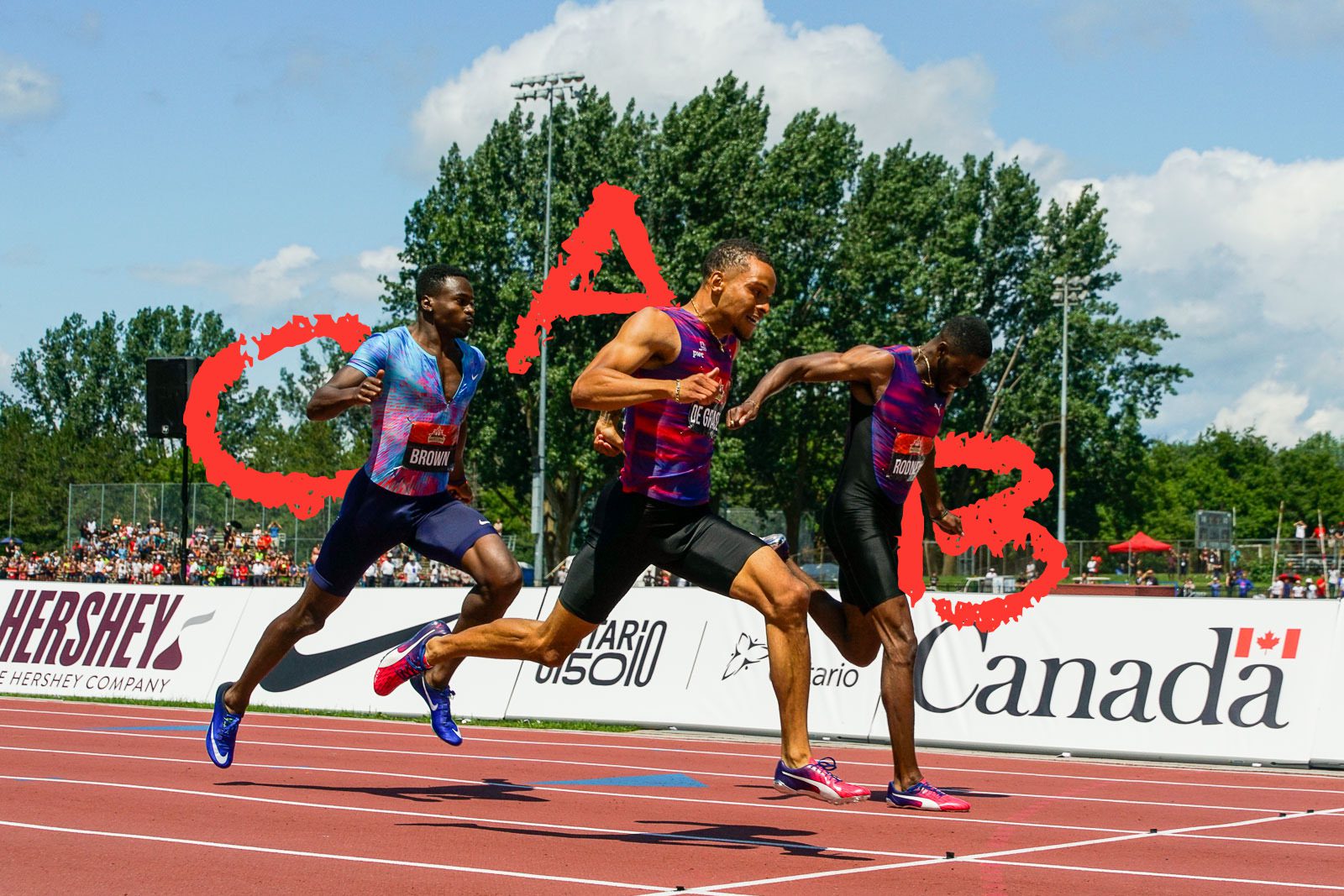 Andre De Grasse
Andre De Grasse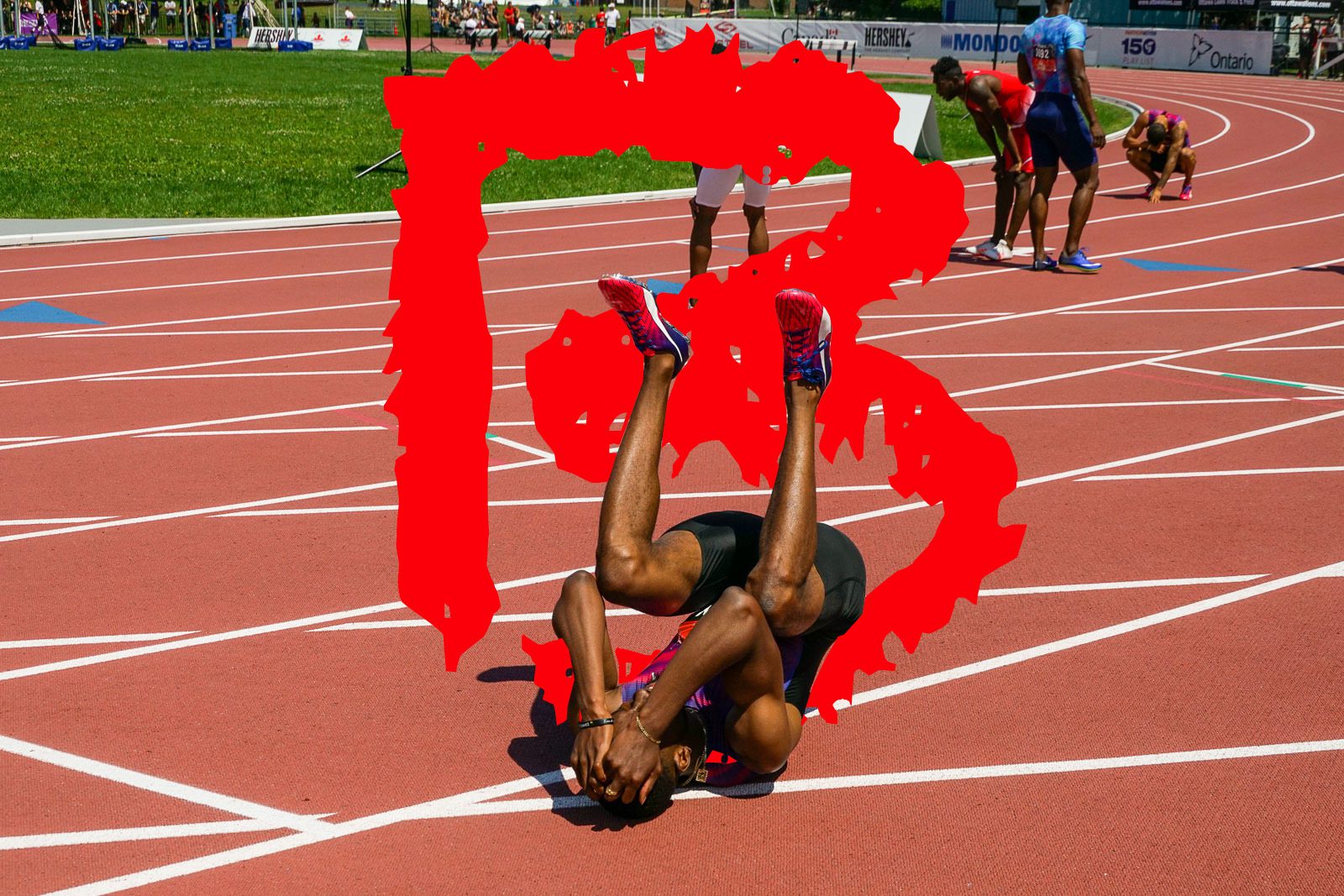 Brendon Rodney
Brendon Rodney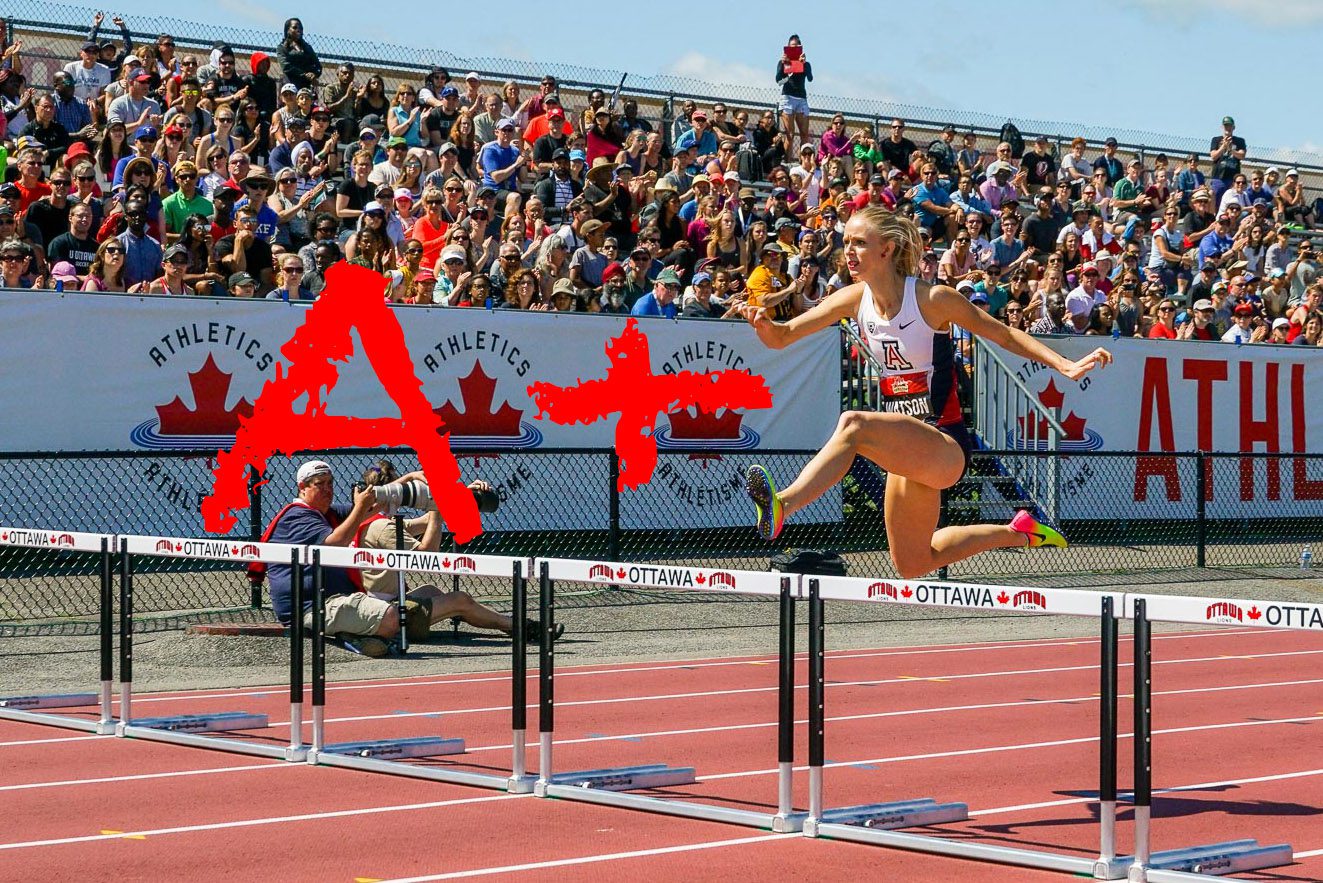 Sage Watson
Sage Watson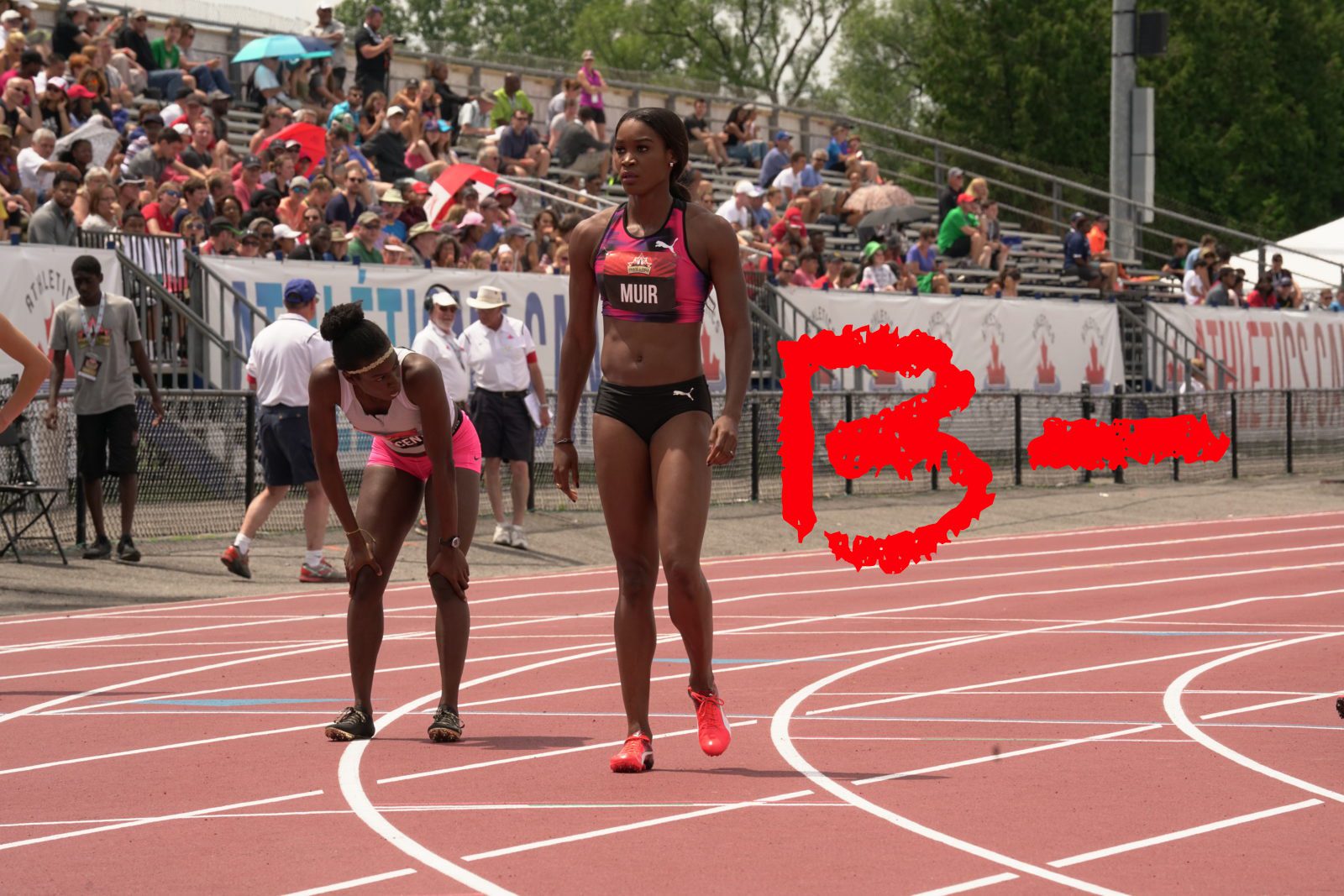 Carline Muir
Carline Muir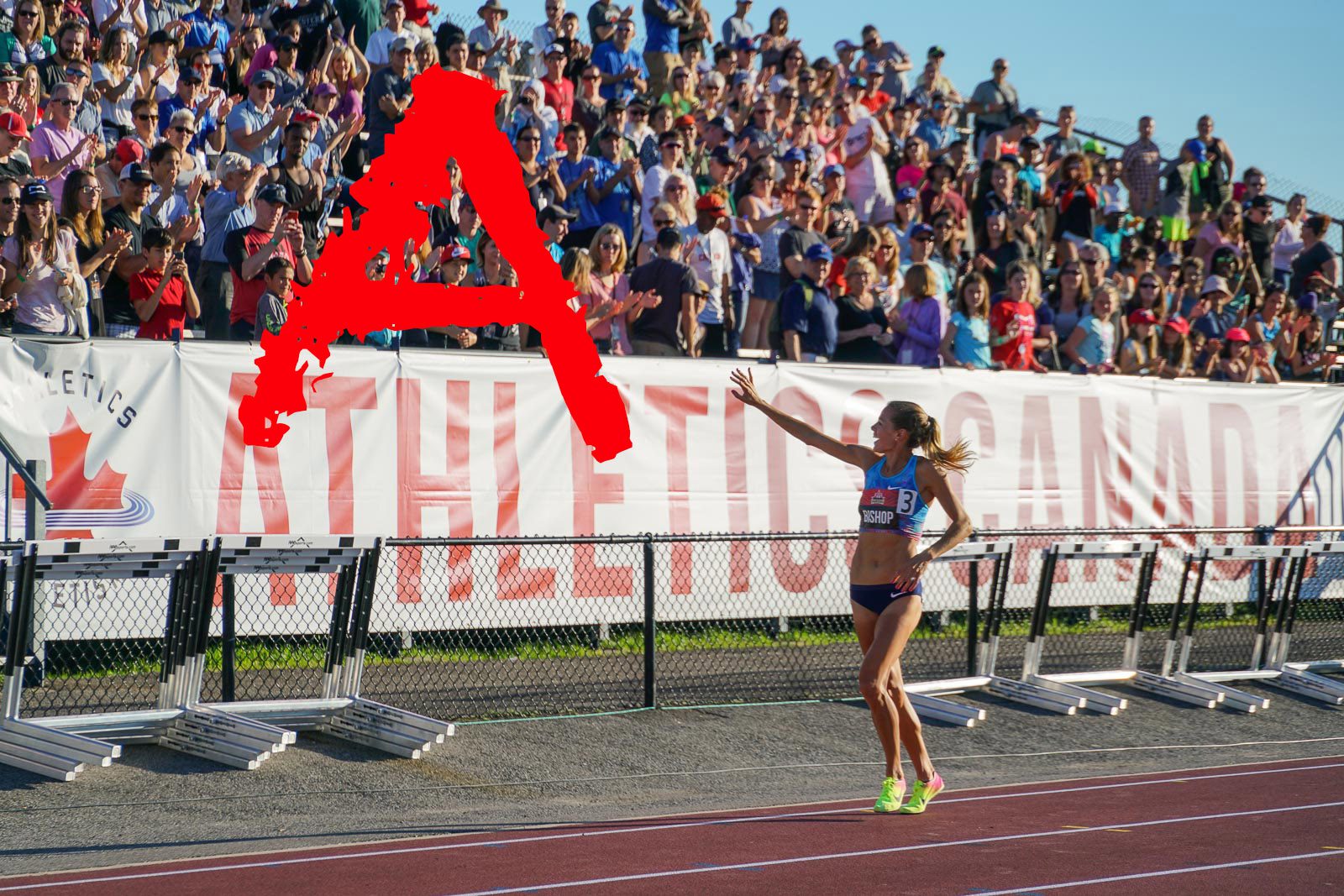 Melissa Bishop
Melissa Bishop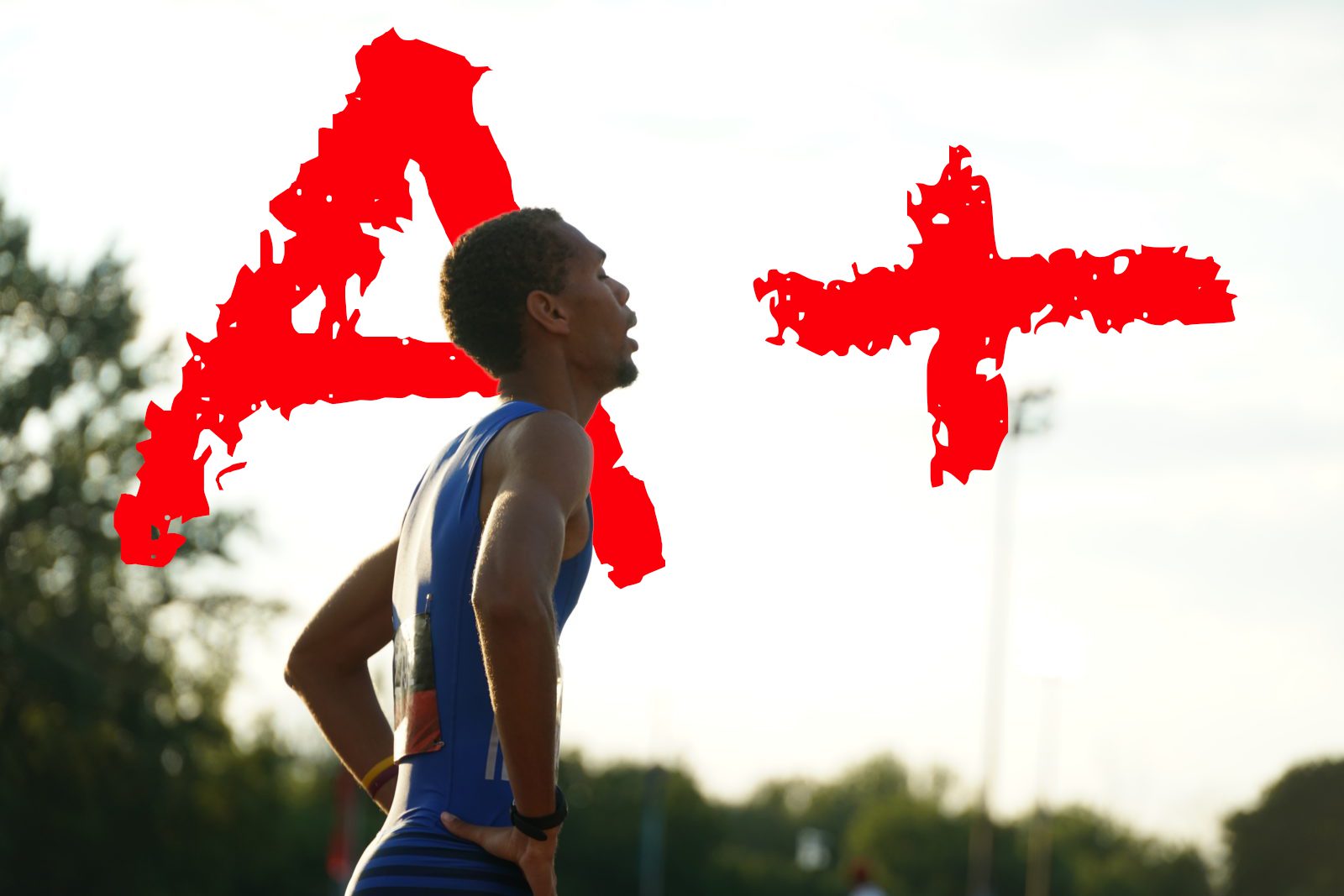 Brandon McBride
Brandon McBride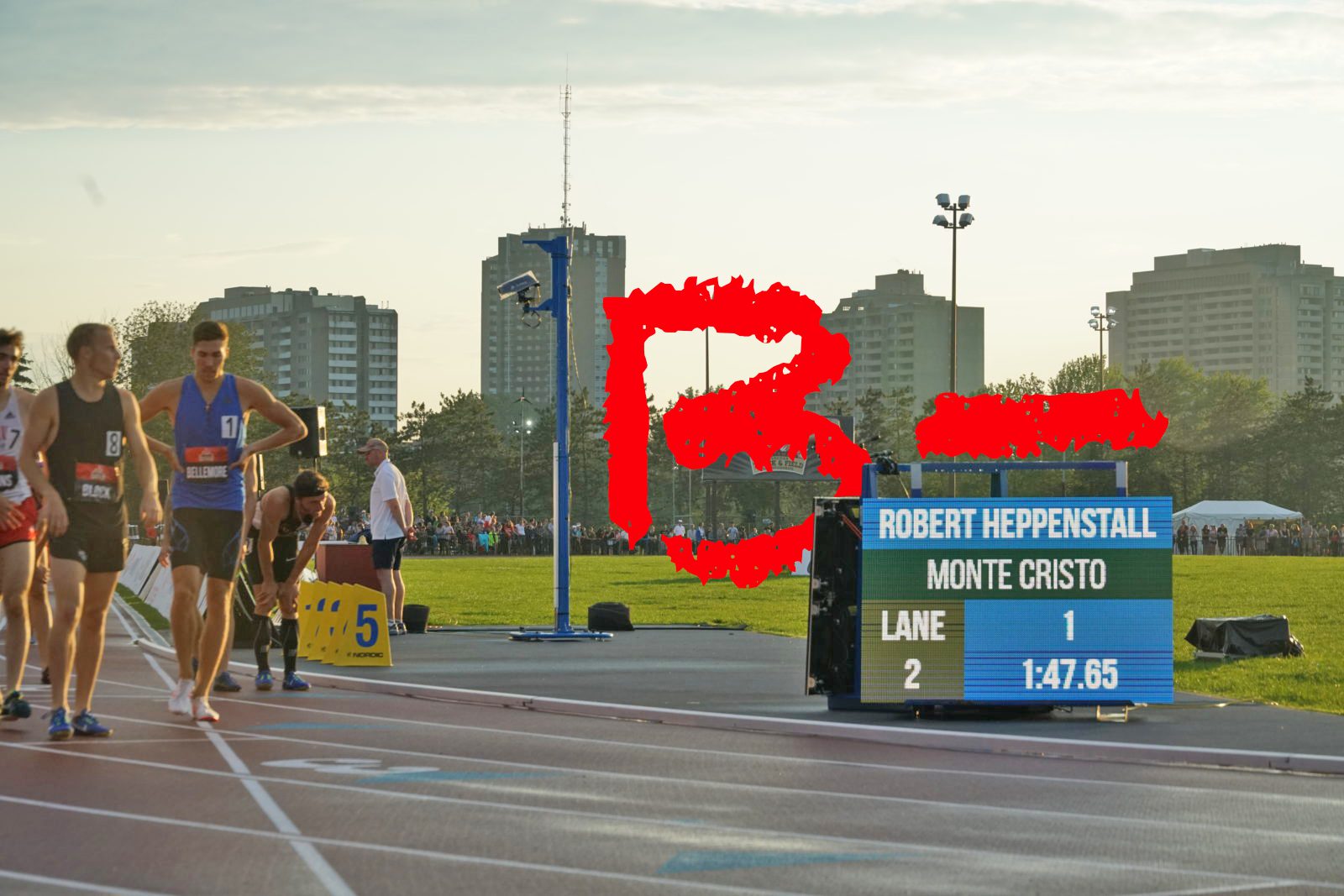 Robert Heppenstall
Robert Heppenstall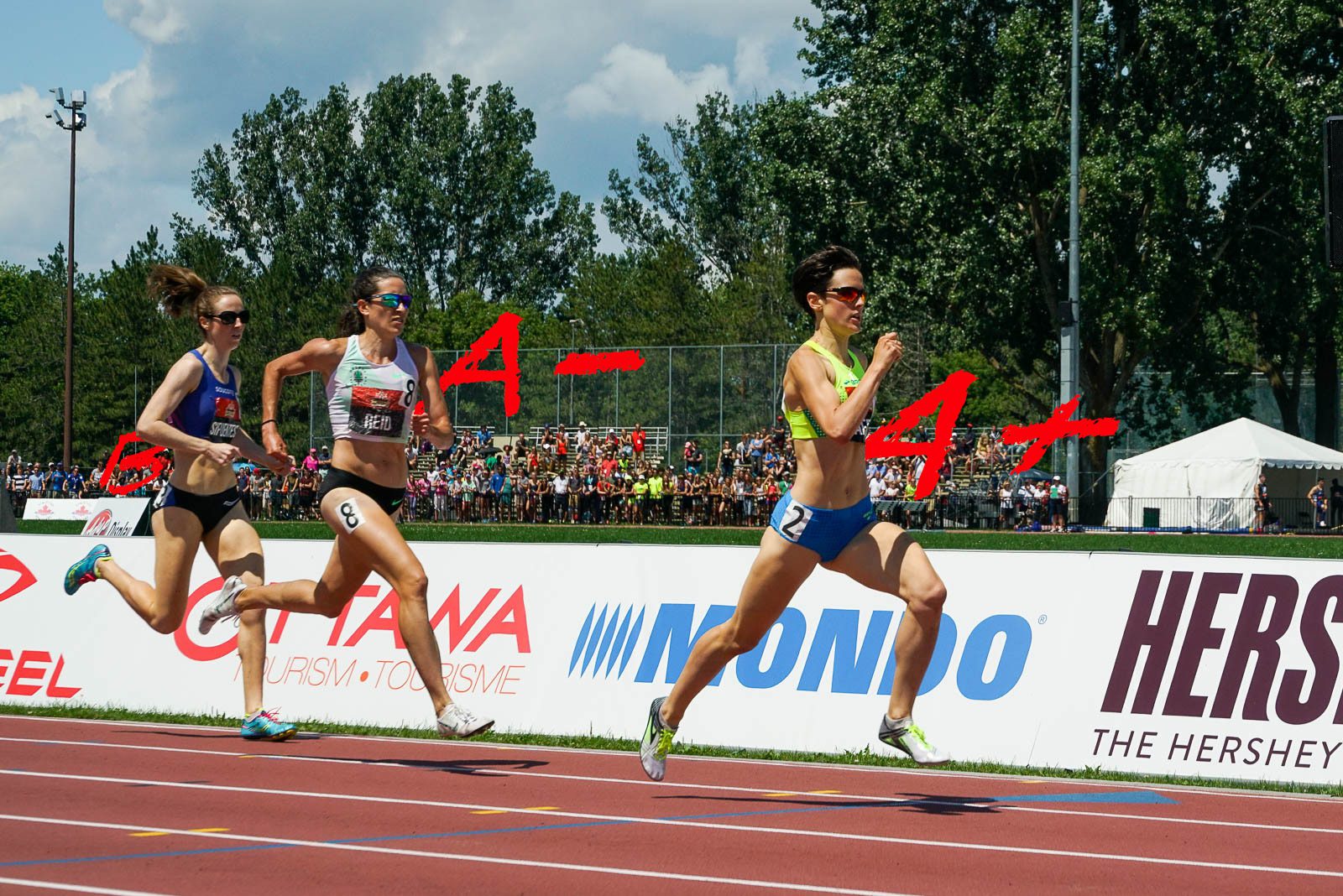 Gabriela Stafford
Gabriela Stafford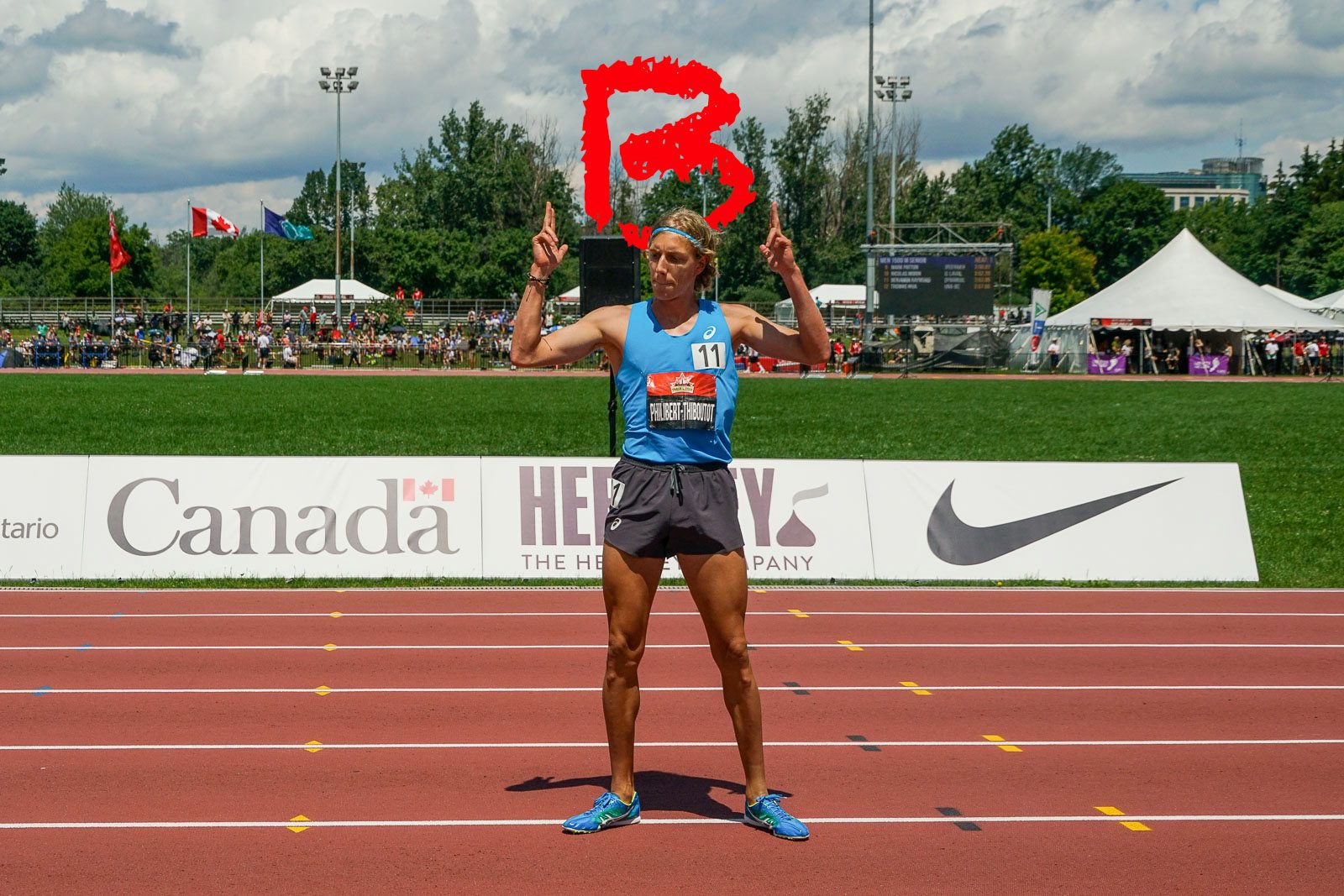 Charles Philibert-Thiboutot
Charles Philibert-Thiboutot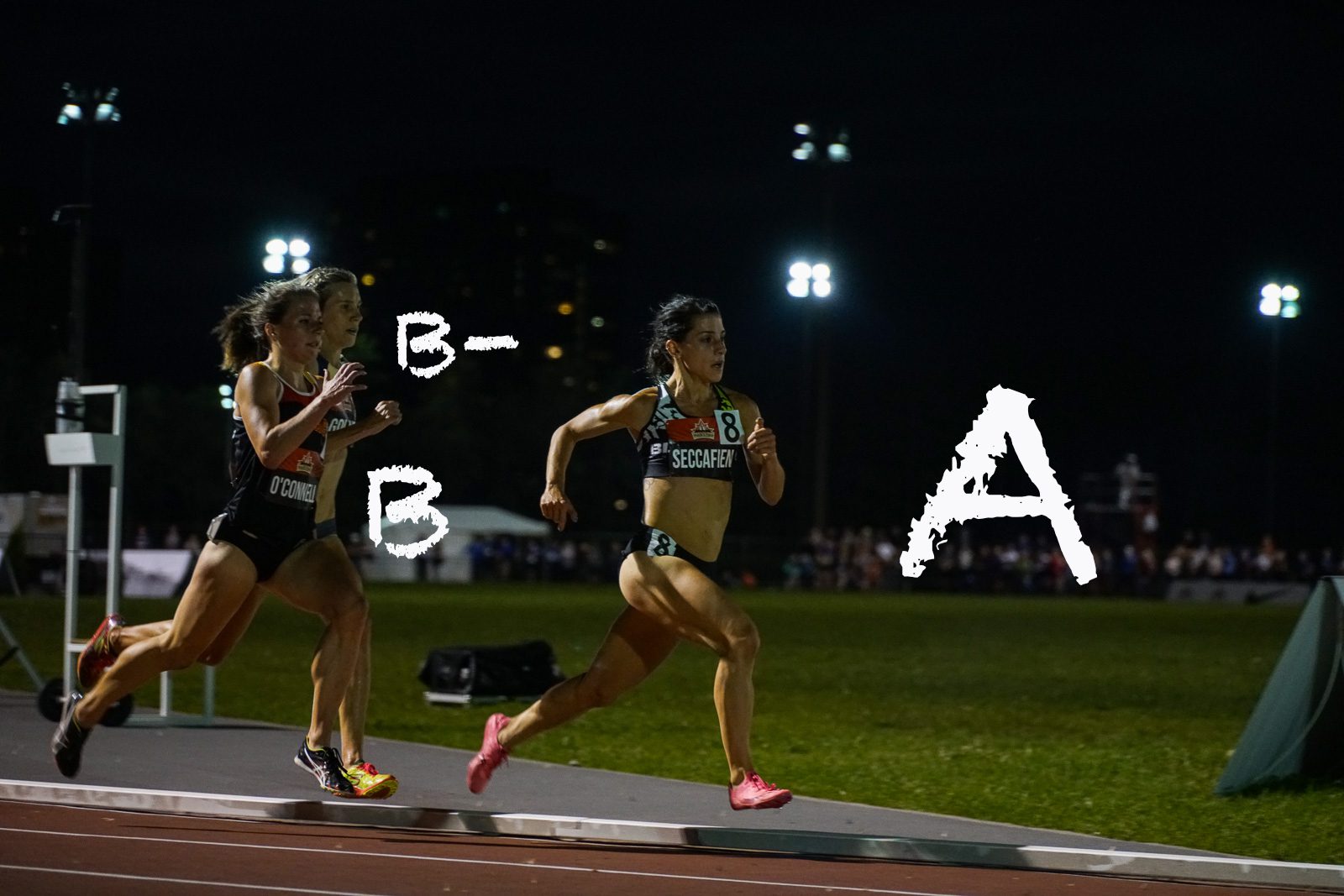 Andrea Seccafien
Andrea Seccafien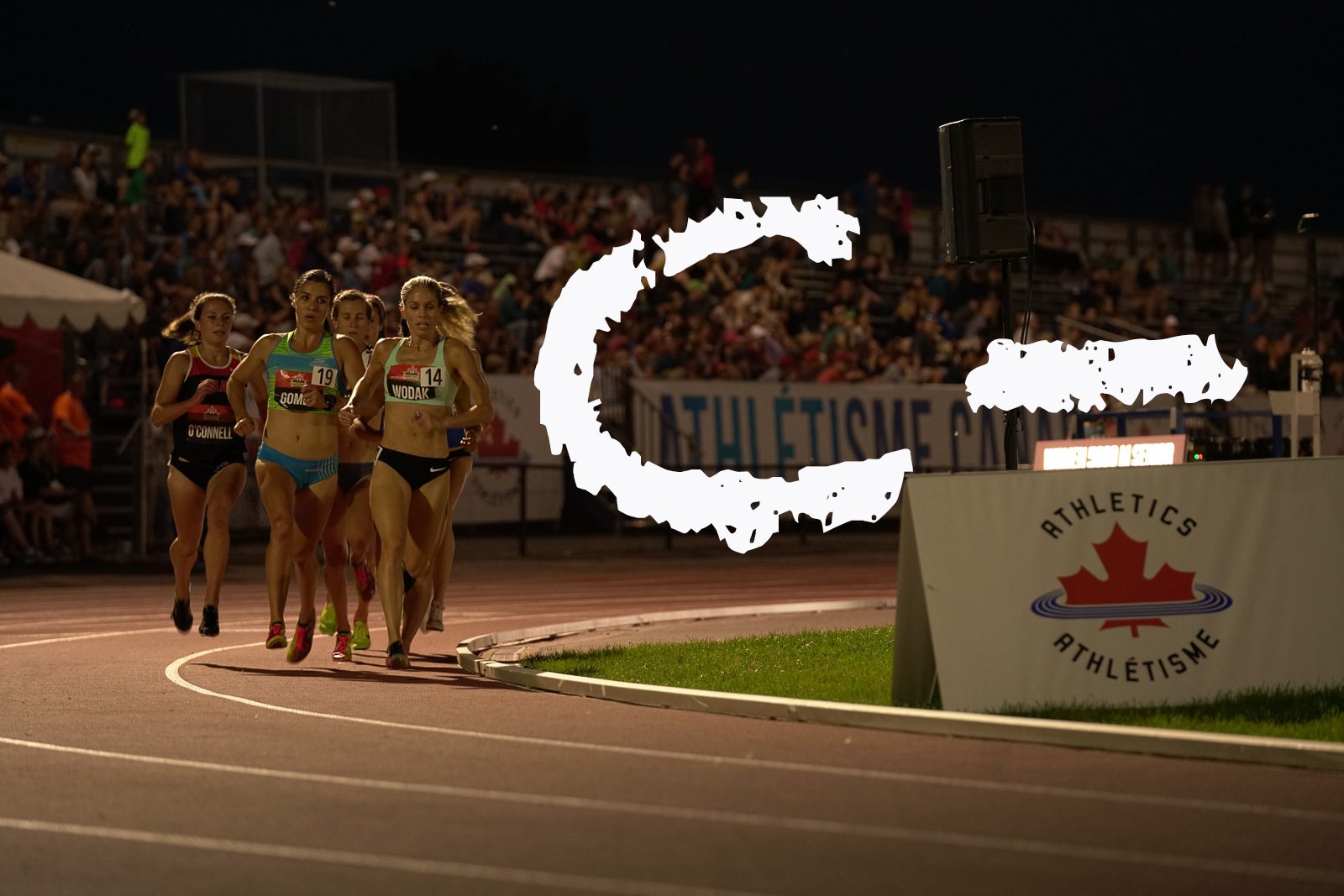 Natasha Wodak
Natasha Wodak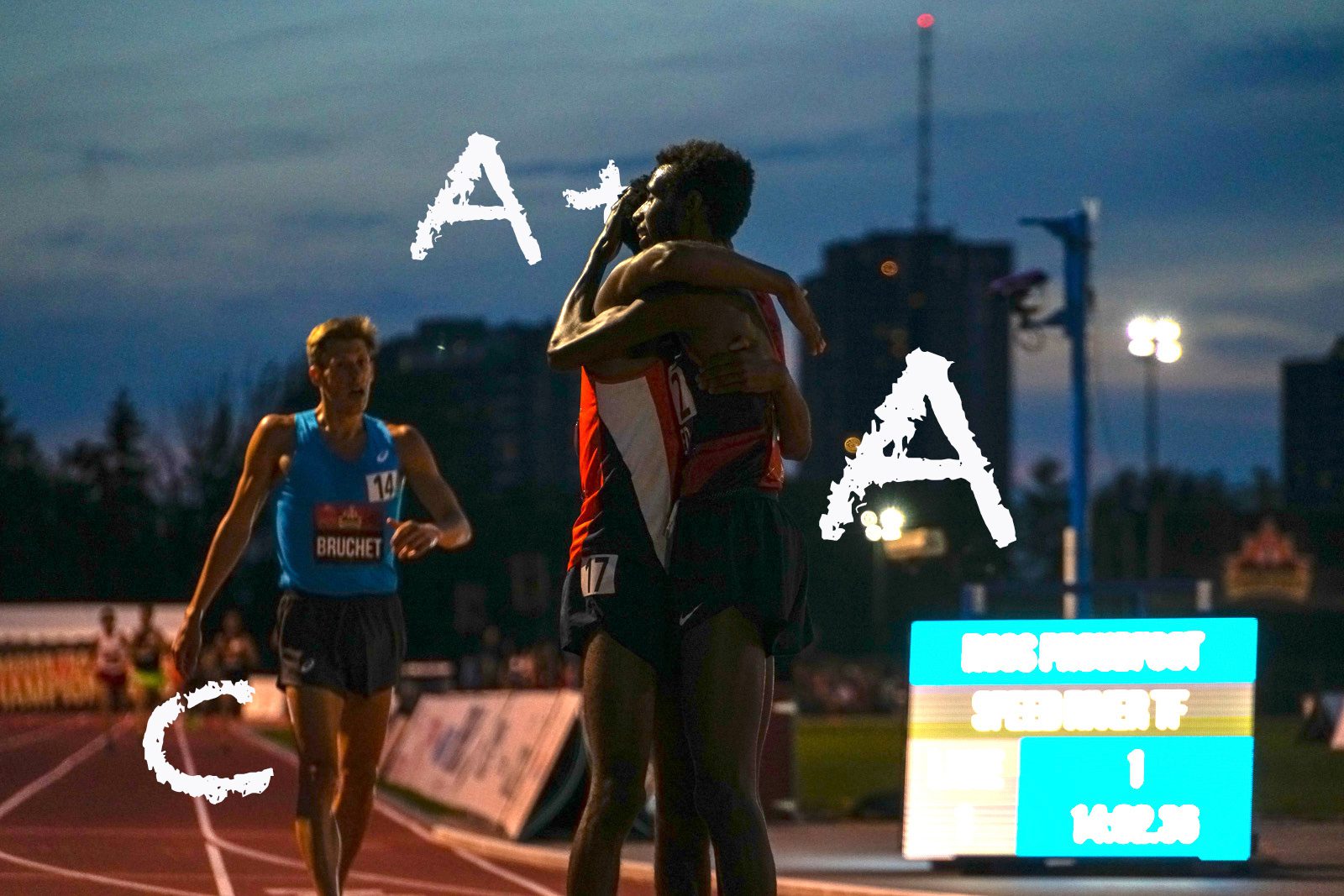 Mohammed Ahmed
Mohammed Ahmed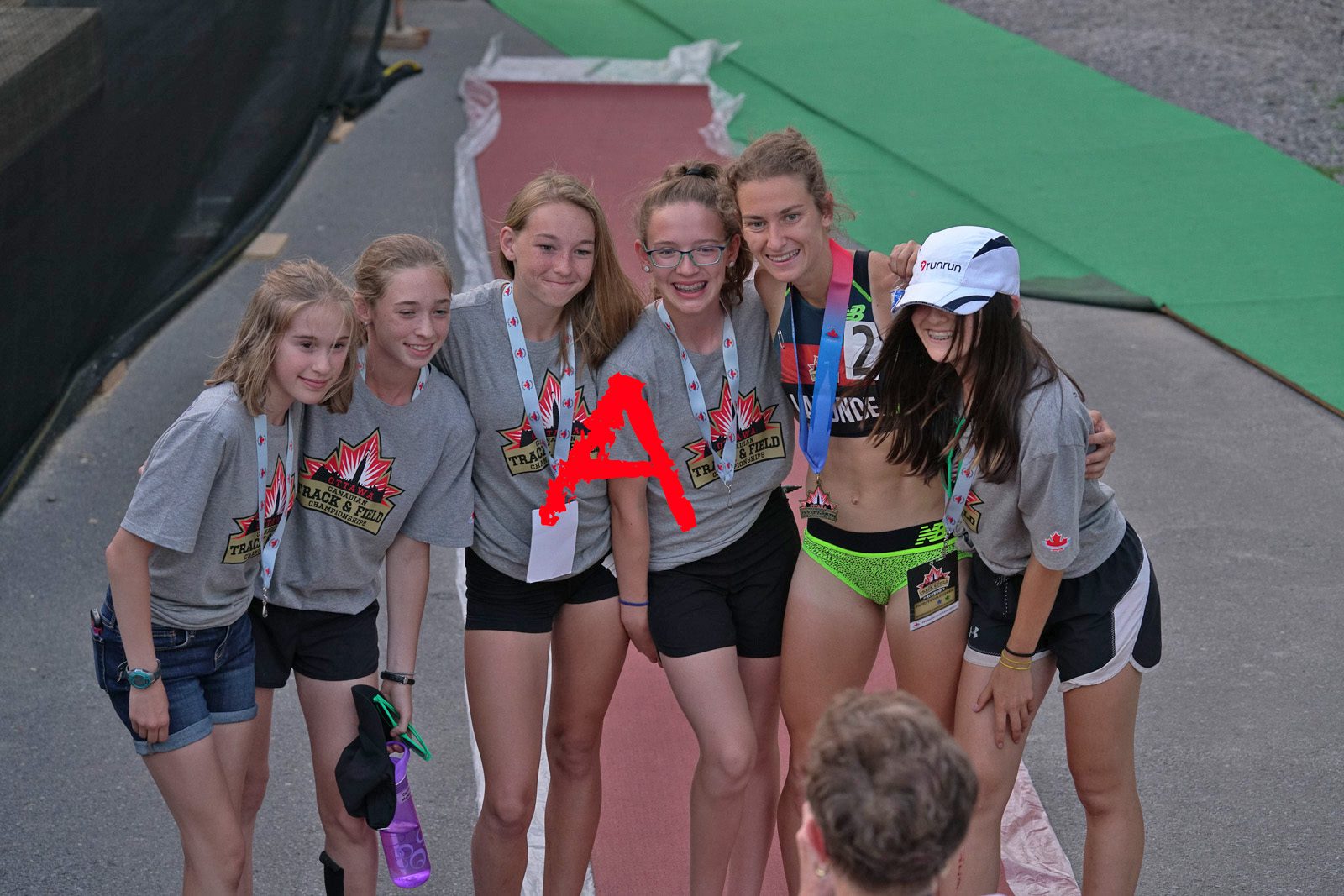 Genevieve Lalonde
Genevieve Lalonde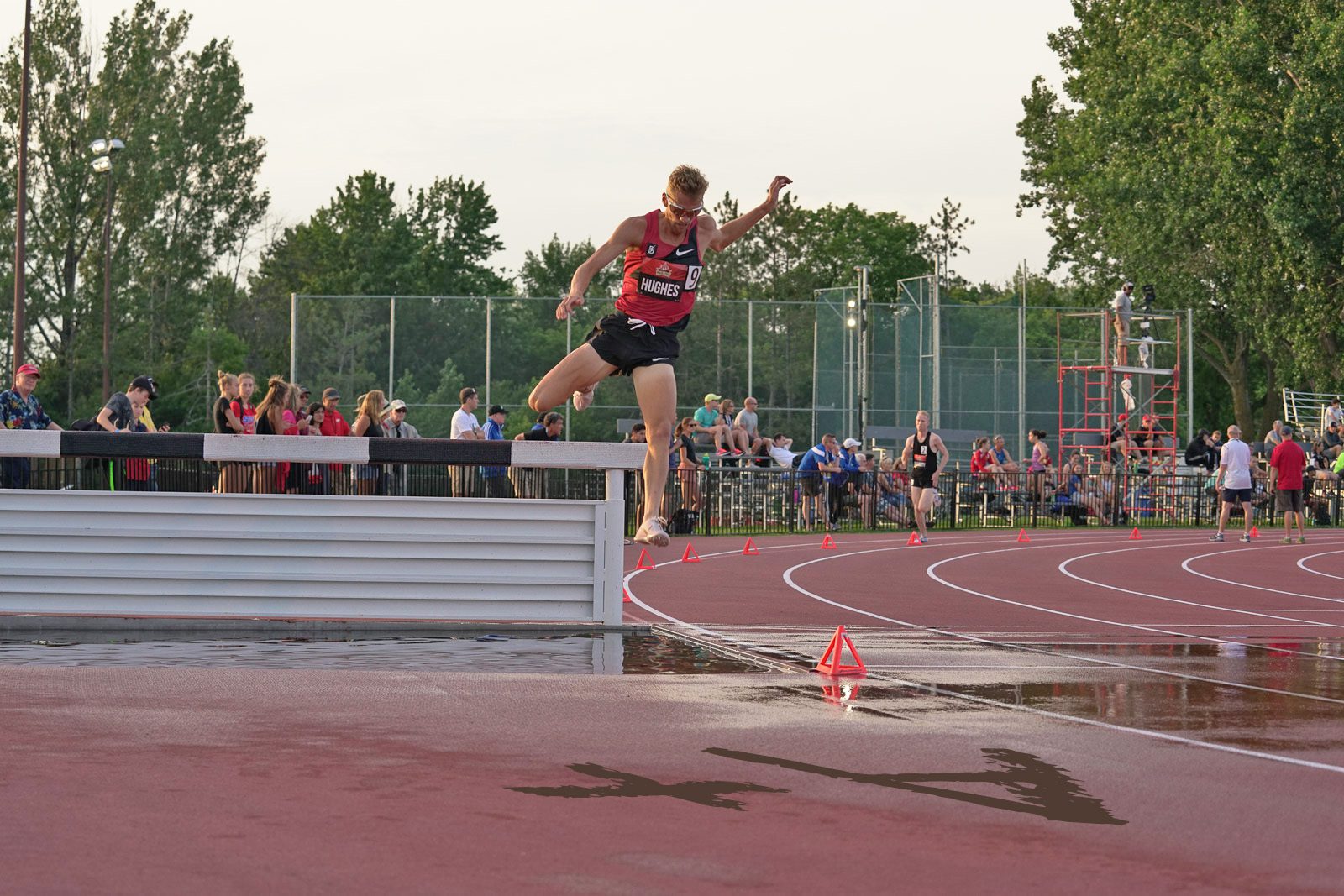 Matt Hughes
Matt Hughes

